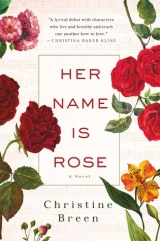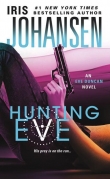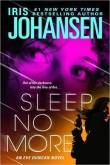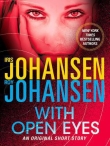
Текст книги "Her Name Is Rose: A Novel"
Автор книги: Christine Breen
Жанр:
Роман
сообщить о нарушении
Текущая страница: 14 (всего у книги 17 страниц)
“Stop. Iris! Don’t say that. You’re her—”
“If it wasn’t so sad, it’d be funny.” Iris raised her hands and held her head, pressing against her temples. “It’s so weird to feel sad for someone you never knew.” She took her long hair and twisted it around and around and fashioned it into a bun at the back of her head. At the sink she turned on the tap and splashed her face. Take control. Now. With her hands on the edge of the sink she looked out the window. The blue clematis was still flowering.
Tess was at her side and handing her a kitchen towel. “It’s all right, Iris. It’ll be all right. You’ll see. I promise.”
Then Iris told about Grace and the odd guesthouse in the South End—“it was rather unconventional”—and she laughed a moment, and about the concert at Titus Sparrow Park, and the Berkshire Mountains.
She left out the part about Hector.
“I’m sorry you’ve been through all this on your own.”
“It’s just, I’m frightened, Tess. Frightened of the future. Of death. For Rose. You know?”
They drank tea quietly, listening as a tractor passed below the garden along the road. Iris wasn’t ready to tell any more. Cicero appeared and jumped onto the table. Iris picked him up and settled him on her lap. She knew Tess was looking at her, so she returned her gaze.
“So what about you? What’s been going on? How are the boys? Sean?” She half listened as Tess gave a rundown of everybody’s activities. Boys were done with soccer camp. (A great success.) She’d been at a conference on abused women. (The statistics are alarming.) And Sean was busy planning. (The music festival.) “Oh, that reminds me, Iris … Sean’s wondering if you could help out, again?”
“Um, maybe. Sure. Remind me when it is?”
“This weekend.”
“This weekend? Oh. Right.” She’d forgotten about it. The annual midsummer music festival. “What does he want me to do?”
“You know. Your usual. Some flowers. But … maybe…” Tess frowned. “Forget it. What am I thinking? Listen. Never mind … you—” Tess took Iris’s hand, making Cicero jump. “Let’s wait and see what we find out at the clinic.”
* * *
Rose had left her mother a note telling her that she was sooooo looking forward to seeing her. And how crazy it was that Iris had disappeared off to America—of all places—and without me! Rose wrote she was gone to London because there was something she needed to take care of. Not to worry. And finally, that she’d gone with a friend. A new friend, and she would be home Thursday afternoon. And P.S. Mum … you’re going to be all right.
Tess came at half seven on Thursday morning to take Iris down to the Limerick Regional Hospital. They came in along the corridor and Iris saw the sign for Oncology and felt a sudden chill; it was where Luke had got his diagnosis. Tess took hold of her arm. “Come on, pet.” They had arrived in plenty of time for the nine o’clock appointment, but still had to wait, which neither minded because they knew some of the women were exiting having been told I’m afraid it’s not good news.
In the Breast Clinic ward they sat on hard, plastic chairs set out in rows in a waiting room in the public area. Tess quietly guided Iris in a breathing exercise, but she was unable to settle down. Her heart had a mind of its own and she couldn’t stop herself from fearing the worst-case scenario. She might as well have been speaking her thoughts aloud because Tess turned to her and said, “Stop it Iris. Stop thinking ahead. We’ll deal with it, whatever it is.”
“Of course. I know. You’re right. Plenty of women recover from breast cancer.”
“Yes. They do. A very high percentage. I know it’s because you lost Luke. And you’re afraid of the word. Cancer. Say it out loud, Iris. Cancer. If there’s cancer we’ll beat it.”
“Mrs. Bowen? Iris Bowen?”
Iris started. She rose and walked a step away and turned back and held out her hand. “Please come in with me.”
“I don’t know, Iris,” Tess whispered. “They probably won’t let me.”
“Tell them you’re a nurse. Please.”
Iris was shown into a small anterior office with a sliding curtain and an examination table and two chairs. And standing just inside the door was L with the magenta hair.
“Oh. It’s you,” Iris said. She’d caught the woman by surprise.
“Yes, it’s me. I work Monday and Tuesdays in Ennis. Wednesday and Thursdays here.”
“Nice to see you again. Can my friend come in with me?”
“I’m afraid not, Mrs. Bowen. She has to wait outside. It won’t be long.”
“Please! She’s a nurse, aren’t you, Tess?”
Tess reached for Iris’s hand in solidarity. “It’ll be all right, pet. Really. I’m sure. I’ll be right here.”
“Well, I’m not supposed to, but you know what? Go for it. You can stay,” L said to Tess, “but she has to go in to see the consultant on her own. Mrs. Bowen, if you’d take your top off and your bra and put this on.” She handed Iris the familiar blue paper cape. “I’ll be back to take you in for an ultrasound. Just a few minutes.”
When L left the room, Tess raised her eyebrows. “Now, there’s a free-looking spirit. That hair. And the nose ring.” Iris nodded, undistracted, turned around and duly undressed and covered up in the paper cape. Then she paced the room. Back and forth, left and right. “It’s not me I’m concerned about, you know.”
“I know.” Tess kept her eyes steadily on Iris. “It’s probably not the right time, and, please forgive me, but—”
“I know what you’re going to say.”
“Do you?” Tess put a hand on Iris’s back and made little circles like she was easing an ache. “Rose will be all right. She will be able to take care of herself. She has her own life to live, too.”
“But…”
“You can’t prepare for every eventuality.”
“She’d have no family—”
“Maybe…” Tess looked at the floor, acknowledging the real possibility of something happening to her friend. She looked into Iris’s eyes. “But I’d be there for her … and, eventually, she’d make a family of her own.”
“You don’t understand. Rose is my life’s work. I can’t … leave … unfinished. I feel responsible in a way that you don’t understand. You can’t understand. I’ve disturbed the natural order of things.”
“That’s crazy.”
“I’m not her real mother.”
“Iris!”
Iris resumed pacing. “Have you read the definition of ‘mother’? I have. I know it by heart: ‘A woman in relation to a child or children to whom she has given birth.’ Why do you think they call birth parents the ‘natural parents’?” Iris’s face was flushed. She lifted her hair away from her neck. The crepe paper cape made her feel hot and cold at the same time. She had never spoken like this. Not to Tess, anyway. Not to anyone. No one except Luke ever knew how Iris felt about being an adoptive mother. She carried on like normal but in her deepest self, she knew she was not like anyone else. Every other mother she knew was natural. She believed sometimes she was an imposter. It wasn’t organic. She’d missed out on some essential hormone or something that comes with being pregnant. Some blueprint that gets downloaded to your hard drive. An invisible guidebook. Then you know without having to ask when to hold on and when to let go. It’s a natural process. You just have to show up and do the right thing. She’d been showing up and doing the right thing all her life. But as an adoptive mother she had to go beyond that and yet she was missing the essential element—the how-to manual. She did her best to leave no stone unturned and had taken her responsibility as a parent as a matter of life and death.
Tess was stunned. Her eyes glossed. She was usually quick to respond but not now; now she was speechless. Iris was grateful her friend didn’t rush in to fill the silence with platitudes. She’d heard so many of them down through the years. “You’re so lucky you didn’t have to go through morning sickness!” Or, “You didn’t have to go through the pain of childbirth—you don’t know how lucky you are!” To all such comments from well-meaning mothers, Iris simply and slowly nodded.
There were tears in Tess’s eyes when she finally spoke. “Iris Bowen, you’re the most natural mother I know.”
Just then L had returned. “This way, Mrs. Bowen. Please follow me.” The nurse held the door open. “I think you’ll be fine, Mrs. Bowen. Really. And,” she smiled, “it’s nice to see you again, too.”
A different nurse helped her up onto the examination bed and checked her name and birth date and the file. She patted Iris on the arm. The door opened and a woman dressed in heels and a dark skirt and white coat walked in.
“Hello, Mrs. Bowen, I’m Dr. Browne. I’ll be performing the ultrasound.” The nurse prepared Iris’s breast with gel, then stood by Iris’s side and held her hand. The light from the monitor shined on the doctor’s young face. Dr. Browne took the probe and rolled it over Iris’s left breast with one hand. She stopped and clicked with the other on the keyboard. “Don’t be alarmed, Mrs. Bowen, just taking pictures.” She stopped the probe, centering in on what Iris imagined must be the distortion, and clicked some more.
Even though the probe was cold, Iris felt as if she were being ironed. The doctor pressed hard and rolled the probe back and forth across her left breast. It hurt. Iris tried to imagine all the badness being pressed out of her, like wrinkles in her blue linen dress being steam cleaned, and all the crinkles and creases, corrugations and distortions being ironed away into faultless perfection. A terrifying few moments ensued as the doctor rolled and stopped and clicked. Iris shivered.
“Just want to make absolutely sure. These architectural distortions can be tricky things.” The doctor said nothing for the next little while and looked at the monitor. She replaced the probe and stepped back. She nodded to the nurse, who wiped Iris’s breast clear of the gel and helped her sit up. The doctor waited while Iris adjusted the cape and moved to the edge of the examination table. “Let’s keep an eye on that left breast.” She placed a hand on Iris’s arm. “You’ve got some very busy breast tissue, Mrs Bowen.”
Iris began to cry.
“There’s a lot going on in there.”
It seemed an age before the doctor added, “But I’m happy with what I see. You’ll be fine.”
Iris looked at her. Then she called out: “Tess! Tess!” And without anyone’s say-so, Tess burst into the room.
“Tell her,” Iris said to the doctor. “Tell her what you just said.”
And because Iris Bowen was not, on that day, someone you could deny, Dr. Browne said again: “She has some very busy breast tissue.”
“A lot going on in there,” Iris said.
“A lot going on in there,” repeated the doctor, nodding. “Yes.”
“But…” Tess said.
“But she’ll be fine.”
“But I’ll be fine.” Iris looked to Tess, who was coming to embrace her.
Iris dressed and on the way out of the clinic’s waiting room, passing the half dozen anxious women awaiting their turn, she met L and smiled and went on through the door. As they headed along the hospital’s wide corridor with its framed artwork on freshly painted honey-yellow walls, Iris said to Tess, “Hold on,” and Iris hurried back. She peeked in the door of the outer examination room. L was getting the next blue cape ready. “I’m sorry, but, may I ask? What is your name? It’s been driving me crazy.”
“Latara. My name is Latara.”
“Nice to meet you.” And for no reason she could quite explain she grabbed Latara with the magenta streak. “Thank you,” she whispered. Iris released her hold and was off and out of the clinic so fast, Tess had to skip to keep up with her.
Sixteen
Rose arrives back home on Thursday. With Conor. She approaches through the gate and up the path that leads to the front door, but her mother doesn’t rush to meet her as she expects. Only the cat does.
“Where is she?”
“Your mum?”
“You’d think she’d be here,” says Rose, turning the key. “Her car’s here.” She stops at the door and looks around.
“Not being nosy or anything, but did you tell her what time you were coming back? Did you tell her about me—”
“No.” Rose looks at Conor with narrowed eyes. It’s a look that stops him, but only for a moment. They walk into the kitchen. Iris’s blue Wellies are neatly paired by the back door and propped against a tall vase of flowers on the counter is a note. As Rose begins to read, her face changes.
“What is it?”
“Her appointment. She’s gone to the Breast Clinic with Tess. I didn’t know it was today.”
Conor studies her. Then he waves her hair over her shoulder and leaves his hand on her back. He draws her toward him and she folds into his arms and buries her head. Rose and Conor have been together four days and three nights, but already they are so comfortable in each other’s company that anyone seeing them would think they’d been together for years. Conor sits on the sofa in the kitchen and watches her now. “It’ll be all right, Rosie girl.”
“Yeah,” she says, and she walks back the way they came in and opens the door for the cat. She lifts and holds him. “You want some milk, don’t you, Cicero? Yes, you do. Yes, you do.” The cat tries to climb onto her shoulder while she pours out milk. Rose lets him drink from a saucer on the counter and plays with his tail.
“Breast cancer is really treatable these days, you know. My aunt Fran had it and came through fine. Healthy as a horse now.”
“I don’t want to talk about it.”
“Sure. No problem.” He shrugs his shoulders, smiles, pushes back the wooly hat. “But you know—”
“Conor!”
“Right. Got it.” He folds his arms. “The girl knows her own mind,” he says to Cicero when the cat finishes the milk and jumps down to rub himself against Conor’s legs.
Rose says nothing. It’s like there’s a still, airless place inside her and she’s retreated. She tries Iris’s phone but it goes directly to voice mail. She doesn’t leave a message.
Cicero makes his way to the door and Rose follows and lets him out. Conor rises and reaches in his pocket for his keys. “I think maybe I should get going.”
She turns and looks at him. Her eyes are tearful.
“All right,” he says, “you’ve persuaded me, I’ll stay.”
* * *
In the late afternoon light in the Ashwood garden, bathed in a half dozen hues of green, sploshes of color punctuate here and there. Red poppies. Spires of blue. White daisies with bright yellow centers. At the bottom of the garden a bush with long blooms of purple is covered in butterflies. Clouds come slowly from the west, drawing across the sky like a silver wave rolling in.
Rose is awfully worried about her mother, but Conor succeeds in distracting her. He asks her if she will play her fiddle.
“You mean my violin,” she says.
“No. I mean your fiddle. The master class was a great success and all, but you’re back in Ireland now, girl. We plays da fiddle here, you know.”
After a brief pause, she laughs and says, “My dad would have liked you.”
He beams, knows it’s the best thing she could have said. “I know you didn’t want me to say anything but I’m telling you now for nothing—you played brilliantly! You really nailed it.”
Rose picks up her fiddle, her bow, and starts tuning.
“You know, Kiwi Surfer Dude isn’t a surfer?”
“Yes, he is.”
“Nope. He’s not.”
“Really? What’s with the poster, then?”
“Just for show.” Conor picks up his fiddle.
“How do you know?”
“A surfer knows a surfer,” he says, and breaks into the fiddle with a quick flourish of his bow. “And a fiddler knows a fiddler.”
They begin with the “Currach” from “Inishlacken,” a concerto for fiddle and violin by the contemporary Irish composer Bill Whelan. Rose has been learning it in her spare time. A challenging piece blending the traditional and the classical. She has only seen and heard it on YouTube when the Irish National Chamber Orchestra played it in Beijing. Conor has played it before with his mother.
“Really? Did she go to China?” Rose asks.
“Yeah.”
“I want to go!”
“Just play!”
He gets me, she thinks. He really gets me. Fact is, she likes playing with someone else, she likes being in a group surrounded by bodies pulsing and being in the music, together, one breathing, magical sound. While she plays she thinks of Andreas. You’re in the music and the music’s in you.
“Brilliant,” he says. “You know what? My mother will really like you.” Conor pushes back his wooly hat and adds, “You’ll be perfect for the festival this weekend.”
“Festival? What?”
“In Doonbeg. You know? The jazz. I’ve sort of invited myself and they accepted. Play with me?”
Rose is caught by surprise. “I don’t know. I don’t know. I’m not good enough for that piece.” Before Conor can reply she hears voices, she lays down her violin and runs to the sliding glass door. Her mother and Tess are walking up the path but neither sees her standing there. She pulls open the door.
“Mum?”
Iris drops her rattan handbag and runs to Rose, who meets her halfway. The hug they share is deep, silent, and all-encompassing, long and powerful and beyond words. Inside it, they rock side to side. Rose cries.
“No. No. No. Don’t cry, honey. It’s all right. Everything is all right.”
“Tell me. I want to know everything. What did they say?”
“The doctor said your mother has very busy breast tissue!” Tess says.
“What—”
“Seriously.” Tess laughs. “It took a good few go-arounds with the ultrasound, didn’t it, pet?”
Iris smiles. “The doctor was very funny. Afterward she said, ‘You’re fine, but you have a lot going on in there.’”
“You should have told me,” Rose says, halting between tears.
“I should have.”
Relieved, Rose feels like collapsing on the lawn. As they walk toward the house her mother takes her hand. Tess is ahead of them, Cicero behind.
“I’m sorry I worried you,” Iris says, taking Rose’s hand to her face and speaking softly.
“I could have handled it, Mum,” Rose says. “Dad told me to take care of you.”
“I know.”
“How can I take care of you if you don’t tell me what’s going on?”
“I know.”
Rose stops. “And no more secrets.”
Tess goes through the door first. And it startles Iris when she hears her speaking to someone inside. “Hello, Conor,” Tess says in a I-didn’t-know-you-were-here voice.
Rose drops her mother’s hand and rushes into the kitchen, landing beside Conor just before her mother enters. Head tilted down but a smile breaking on her face, she says, “Mum, this is Conor.” She pauses for a moment. “Conor, this is Mum!”
Rose watches her mother’s eyes dart to Tess, then back to Rose and over to Conor, then onto the stringed instruments lying side by side in their open cases. They are waiting for her to say something. Even Cicero has jumped back up onto the counter and looks around expectantly. Something registers on Iris’s face and she walks to the young man she’s seen before and says, “Nice to see you again, Conor.” He has cut his hair. Now it is short and curly. The ponytail is gone but the wooly hat is still there. She turns and plucks the cat off the counter.
“You, too, Mrs. Bowen,” Conor says. He reaches to shake her hand but can’t because she is holding the cat.
“So…” Iris says, “this is your new friend?”
Rose shoots her mother a warning look. The four of them are standing around the counter and for a second Iris looks like she’s the stranger in her own house. Then Tess says, “I think I’d better get going. The boys are hoping I’ll take them to Doonbeg this evening, to set up.”
“For the festival?” asks Conor.
“Yes,” Tess says, raising an eyebrow the way only Tess can.
“Yeah? Cool. Rosie and I are going, too. In fact, tomorrow night we might—”
“I haven’t decided yet,” Rose interrupts him, sharply, and for a moment no one says anything. “I haven’t said yes.”
Iris shakes her head. “I feel as if I’ve been gone a month!”
“That’s what happens when you’re missing in action, Mum,” Rose says, a bit too sharply, and it makes Conor look at her in surprise.
Tess winks at Rose. “You’re all right now, pet,” she says to Iris as she leaves. “See you later.”
“I’m off then, too,” says Conor, looking inquiringly at Rose, but she avoids his gaze. “I can be back later if you want to go to the pub session tonight. Or you, Mrs. Bowen? We could go together.” Iris looks at Rose, but she’s not saying anything. Conor shrugs. “I’m glad you’re all right, Mrs. Bowen.” He closes his fiddle case and crosses in front of Rose to the door. “Maybe I’ll see you later,” he says and he hesitates a moment as if for a kiss.
Rose feels Iris’s eyes on her as she lets Conor pass. She bites her lower lip, she pushes her hair behind her ears. She glances at her mother, and then outside. Conor is on the garden patio, then he’s on the path heading to his van, when finally she calls, “Wait!” and goes after him.
Standing beside the stone cabin, where a climbing clematis is hanging loosely, she says in a low voice, “I haven’t decided about playing. You can’t just expect—”
“I was going to suggest another piece if you thought the Whelan piece too tricky. What about ‘Over the Rainbow’? If Grappelli and Frankie Gavin can, on violin and fiddle, so can we. Right?”
Conor reaches out to her, but she shoulders him away.
“Sorry. I don’t understand what the big deal is.”
Rose turns around. There’s so much he doesn’t understand, she thinks.
“That’s all right, though,” he says. “You think about it and let me know.” He kisses her lightly on the back of her head and says, “Okay, Rose, I had a good time the last couple of days.” He waits for a response. “Rose?”
She forces herself to turn and face him. Except for her father’s, Conor Flynn has the kindest eyes she’s ever seen.
“See you later?” he says.
“Not tonight.”
They stand a moment longer in Iris’s garden. A strong wind picks up and a petal from a blue clematis floats and lands on his shoulder, then slips off. Rose is motionless. For a second her breath stops. She gives Conor one long look, which leaves him looking confused. Then she turns and heads back to her mother’s kitchen.
What Rose hasn’t told Conor is that the piece he wants her to play was one of her father’s favorites. She hasn’t told him of the strange synchronicity and how the moment he’d said it, her heart split. She doesn’t know if she can do it. Luke Bowen had collected nearly every single recording ever made of “Over the Rainbow,” from instrumentalists like Stéphane Grappelli, Nestor Torres, Jeff Beck, and Keith Jarrett, to singers Frank Sinatra, Ray Charles, Plácido Domingo, Eric Clapton, Eva Cassidy, Willie Nelson, Sarah Vaughan (and, of course, Judy Garland), and his favorite, Israel Kamakawiwo’ole.
As she comes back into the kitchen she hasn’t decided if now is the time to tell her mother more about Conor. There is so much to tell now that Iris is back from her crazy trip to Boston. And what the hell? Like, what was her mother thinking? And why Boston?
Then it hits her—her mother is all right! Nothing else matters. Her mum doesn’t have cancer. “Mum!” she says when she sees Iris still standing there in the kitchen like a solid piece in the center of a puzzle. That’s all Rose can manage. “Mum!” She hugs her mother and cries, gulps for air, and Iris rocks her gently back and forth on her shoulder, smoothing her hair.
“I’m glad you’re home, Mum. I have so much to tell you,” Rose says. She stands back and sleeves her tears.
Her mother has a look that Rose can’t quite interpret. It’s happy and sad at the same time.
Iris waits a moment, then she says, “Me, too, honey. Me, too.”








